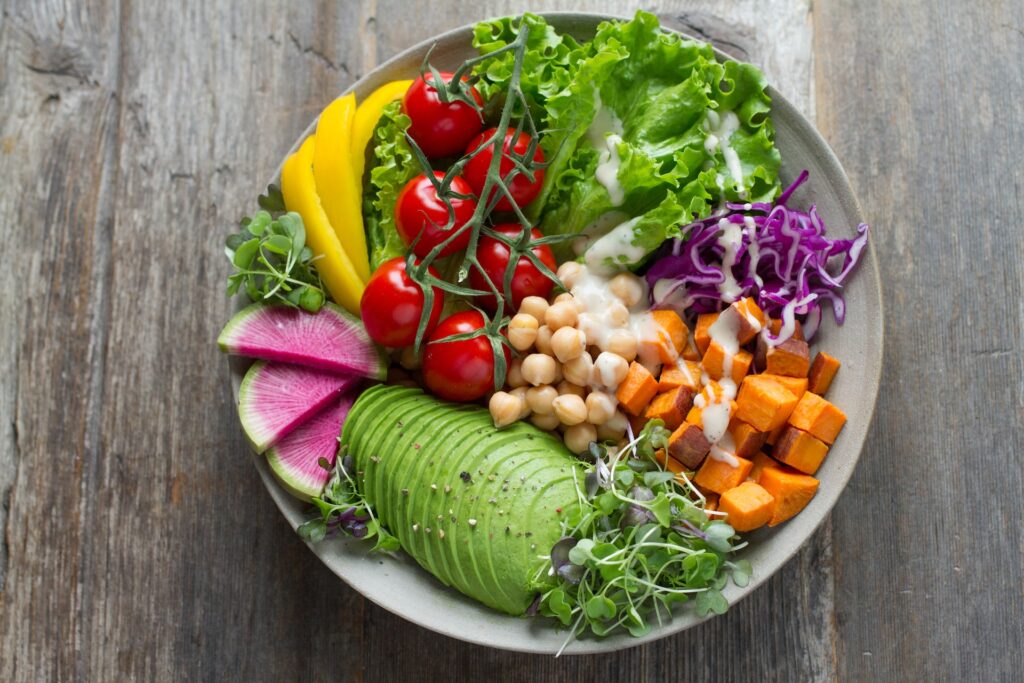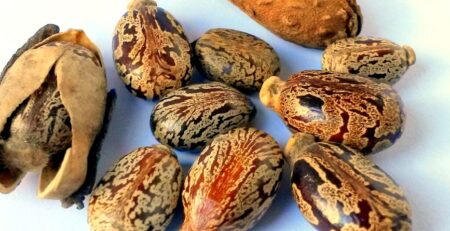My Top Food and Lifestyle Choices for Better Gut Health
Your gut is a bustling rainforest teeming with life—except this isn’t an Amazon jungle!
About 100 trillion bacteria reside in the gut, forming the gut microbiome, and producing numerous health effects.
Just like various species shape a rainforest, microscopic microbial species form a complex network in your gut, impacting your health in ways you might not even realize.
Therefore, our nutritional and lifestyle choices matter!
But modern lifestyles are threatening the health of our guts.
Here’s some good news – simple changes in what you eat and how you live can help bring balance back to your gut ecosystem.
So today, we delve deeper into what works for your gut and what doesn’t!
Let’s Begin with Prebiotics, Probiotics, and Synbiotics: The Allies of Gut Health
When it’s about gut health, prebiotics, probiotics, and synbiotics are making a big buzz around the world right now.
But do you know what are they?
- Prebiotics are non-digestible food ingredients but are good for you because they help specific bacteria in your colon grow and improve your health.
- Probiotics are beneficial live microorganisms that help populate the gut and create a microbiome balance.
- Synbiotics are a mix of prebiotics and probiotics.
A plate of raw onions, a juicy apple, or a colorful array of vegetables are not just tasty additions to your salad; they are prebiotics, fueling the growth of beneficial bacteria in your gut.
On the other hand, probiotics, obtained from natural sources like fermented foods and cultured yogurts, introduce beneficial bacteria directly into our digestive system.
But Are Fermented Foods Good or Bad For You? Find Out.
From sauerkraut to kimchi, the options are diverse, catering to both omnivores and vegans alike.
For those looking to save a penny or two, make your fermented vegetables at home. Carrot sticks, radishes, or even a batch of homemade kefir can become potent probiotic sources.
Explore some easy-to-make probiotic recipes, right here!
When incorporating synbiotics into your diet, a simple way to begin is by adding a synbiotic combination such as yogurt paired with whole-wheat cereal.
However, the catch is, everyone’s gut microbiome is unique.

Did you know that a study revealed that the human microbiome—has the potential to uniquely identify individuals, much like a fingerprint?
In a world that often prescribes one-size-fits-all solutions, the concept of bio-individuality shines through!
What works for your friend may not work for you, and that’s perfectly normal.
Soluble vs. Insoluble: The Right Mix Matters
Seeking the perfect balance of fiber – not too much, not too little, but just right.
If you’re dealing with ulcerative colitis or Crohn’s, too much or too little can wreak havoc on your gut. Striking the right balance is essential, as extremes can lead to irritation of your delicate mucosal linings and digestive issues.
The key lies in understanding the delicate balance between soluble and insoluble fiber and introducing them at the right time.
Remember, not to overindulge in fiber consumption, both natural and supplementation! Your gut needs to be nurtured and not overwhelmed!
Looking for an abundance of probiotics and fiber? Here’s A Super Healthy Snack For Your Gut!
Further, adding fiber without ensuring proper hydration can elevate the chances of constipation. Remember to nurture your gut wisely, maintain the right balance and stay well-hydrated!
Omega-3: A Hero in Gut Repair
In a world saturated with omega-6, thanks to refined oils, processed and junk foods, maintaining a healthy balance becomes a challenge.
Often overshadowed by its counterpart, omega-6, omega-3 emerges as a hero in the repair of the gut lining. It has a potential impact on the immune system, inflammation, and even conditions like Alzheimer’s and cancer.
Unfortunately, today sourcing omega-3 naturally through wild-caught fish, grass-fed meats, and organic, cage-free, pasture-fed eggs, is very difficult!
Therefore, omega-3 supplements become a vital tool in maintaining gut health.

Whether vegetarian or non-vegetarian, the right supplementation can fill the nutritional gaps and support overall well-being.
If you’re tired of supplements, enjoy this omega-3-rich chutney, which is also filled with fiber and protein!
However, in certain medical conditions, food sources may not provide sufficient amounts of essential nutrients, and in such cases, consider supplementing your intake for optimal well-being.
The Real Culprits: Sugar and Empty Calories
Empty calories like junk food and white sugar act as fuel for harmful bacteria in the gut.
Another culprit, a prevalent component in packaged foods – High Fructose Corn Syrup (HFCS) is extremely harmful for your gut health.
Fasting or eliminating junk food and sugar becomes a powerful strategy to starve the bad bacteria, paving the way for a healthier gut environment.
Beyond Intolerance: Understanding Allergies
Ever felt confused about lactose or gluten? You’re not alone!
Many individuals may unknowingly suffer from lactose or gluten intolerance.
- Lactose intolerance occurs when the body lacks an enzyme called lactase, which is essential for digesting lactose, the sugar found in milk and dairy products.
- Gluten intolerance, also known as non-celiac gluten sensitivity, involves difficulty digesting gluten, a protein found in wheat, barley, and rye.
Many individuals may unknowingly suffer from these intolerances, experiencing symptoms like bloating, gas, stomach cramps, or diarrhea after consuming dairy or gluten-containing foods.
Rather than self-prescribing dietary restrictions, get tested by a doctor. Testing helps reduce stress and provides a clear path to gut health.
Now that we’ve understood about nutrients.
It’s Time to Explore Biodiversity: Make Your Plate Look Like a Rainbow
Just like when you travel and dig into local delights, your gut loves a variety of foods. It’s like giving your gut a passport to explore different flavors and nutrients.

Make your plate look like a rainbow!
The rainbow on your plate should reflect the colors of the local fruits, vegetables, nuts, and seeds, creating a connection between your diet and the region you inhabit.
Your gut microbiome is an intelligent ecosystem.
It can adjust to external factors such as diet, weather, air quality, and the surrounding environment. It also acts as a living record of our medical history, since it memorizes every antibiotic, medication, and substance that enters our body.
Isn’t that amazing?
The adaptability of the gut isn’t just a survival mechanism; it’s a sign of the gut’s intelligence and power in maintaining balance within the body.
This inherent intelligence can serve as the most natural gut cleanser ever!
While gut wisdom is fascinating, it’s also linked to obesity. Let’s find out the secrets!
Beyond the Scale: Unraveling the Gut-Obesity Connection
Small Intestinal Bacterial Overgrowth (SIBO) has emerged as a silent force linked to the growing epidemic of abdominal belly fat and obesity.
It is a condition marked by an overgrowth of bacteria in the small intestine. These bacterial invaders disrupt the delicate balance within the gut, triggering a cascade of symptoms – bloating, constipation, loose motions, acidity, and even brain fog.
If you’re dealing with acidity, indigestion, or bloating, try This 3-Ingredient Concoction For Better Gut Health.
Everything is connected with the health of our gut.
By addressing and rectifying the imbalances within the gut, individuals can experience sustainable weight loss and improved overall well-being.
Obesity is not just about a weight loss plan and exercising hard—it’s way beyond.
It involves a comprehensive approach, including a gut protocol with a fat-burn plan and lifestyle changes. Additionally, it emphasizes nurturing gut health, managing inflammation, cultivating a diverse microbiome, fostering a robust gut-brain axis, and more.
This brings us to a very crucial lifestyle choice, quality sleep!
Sleep: The Often-Overlooked Factor
You may be diligently consuming your prebiotics and probiotics, and even embracing intermittent fasting, yet your gut remains unhealthy.
The missing piece of the puzzle may be sleep!
Medical science has increasingly revealed the link between the quality of our sleep and the state of our gut microbiome.
Even a single night of sleep deprivation can throw our gut bacteria into disarray, disrupting the delicate balance that is essential for overall well-being.
Late nights fueled by our love for entertainment may seem harmless, but they come at a cost – our health. Recognize the non-negotiable nature of sleep in the pursuit of holistic well-being.
With proper planning and a commitment to making sleep a priority, make sure to get at least five out of seven days a week for quality sleep.

Bonus Tip: Get an extra 30 minutes or an hour if you’re currently sleep-deprived. Besides, it’s crucial to prioritize regular sleep patterns—maintaining consistent bedtime and wake-up times—allowing your body to establish a healthy sleep-wake cycle.
If you toss and turn all night, here’s the secret to sleep like a baby!
Simplicity Over Complexity: The Gut Health Mantra
The fundamentals often take a back seat when the world is entangled in complex solutions.
Gut health, however, thrives on simplicity!
With the right understanding of prebiotics, probiotics, fiber, omega-3, and the impact of sugar, coupled with a good night’s sleep, we unlock the path to a robust gut.
It’s not just about sleep and nutrition; physical activity, like yoga, breathing well, and stress management, are also vital for a healthier gut!
Try these Top 7 Yoga Asanas for a Happy Gut!
Disclaimer: The information provided in this blog is for informational purposes only and is not a substitute for professional medical advice. Always consult with a qualified healthcare provider or physician before making any changes to your diet, fasting regimen, or health practices.
References:
- Guinane CM, Cotter PD. Role of the gut microbiota in health and chronic gastrointestinal disease: understanding a hidden metabolic organ. Therap Adv Gastroenterol. 2013 Jul;6(4):295-308. doi: 10.1177/1756283X13482996. PMID: 23814609; PMCID: PMC3667473.
- Personal microbiomes shown to contain unique ‘fingerprints.’ Harvard T.H. Chan, The School of Public Health. May 11, 2015.
Need help to address the health of your gut? We help you find a way.
Join our Gut Health Program
Set up a one-on-one consultation with our integrative team of experts.
Get in touch with us, call us at 1800 102 0253 or write to us at consults@lukecoutinho.com.
Got gut issues? Shop for ethical products for your gut here.
Also Watch:
Shortcode:
|
From a pimple to cancer, our You Care Wellness Program helps you find a way Talk to our integrative team of experts today 18001020253 |









Leave a Reply